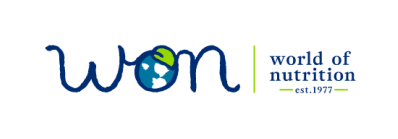|
The American Heart Association reports that approximately 2,150 Americans die each day from heart disease, stroke and cardiovascular disease. That is one person every 40 seconds. Cardiovascular diseases claim more lives than all forms of cancer combined. Heart disease is the No. 1 cause of death in the United States. There are powerful vitamins, herbs, omegas, and antioxidants that can significantly reduce your risk of developing heart disease, cardiovascular disease and stroke. It is time to take back control of your health and wellness. 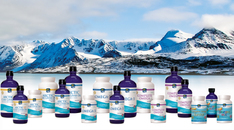 Omega 3 Fatty Acids: There is more scientific based evidence on the cardiovascular benefits of omega-3 fatty acids than any other nutritional supplement. Omega-3 fatty acids can lower bad cholesterol (LDL) and raise good cholesterol (HDL). They can lower blood pressure in people with hypertension. Omega-3 fatty acids are one of the best ways to prevent heart disease and reduce the chance of a second heart disease incident (heart attack, stroke, abnormal rhythms, or death). Eating just two servings of fish per week (think salmon or tuna) can reduce the risk of a stroke by as much as 50%. Omega-3 fatty acids encourage healthy blood vessel function and reduce inflammation around the heart. 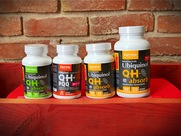 Coenzyme Q10: CoQ10 is an antioxidant that is found in nearly every cell in the body. Antioxidants fight free radical damage in the cells and DNA of the body. Free radicals contribute heavily to the aging process and many health problems like heart disease. CoQ10 has the ability to improve the amount of energy in cells and prevent blood clots from forming. Clinical studies have shown that people who took CoQ10 within three day of having a heart attack were less likely to have following heart attacks and further chest pains. It reduces the risk of death associated with heart disease. For those with congestive heart failure, CoQ10 reduces swelling in the legs, fluid in the lungs, and makes it easier for you to breathe, which results in higher levels of energy. There have been clinical studies that have shown CoQ10 may lower blood pressure over an extended period of time. Pharmaceuticals to treat high cholesterol deplete the body of CoQ10 and so it is extremely important to supplement this antioxidant. If you are on statins for high cholesterol, CoQ10 can help ease the side effects of this medication such as muscle pain and fatigue. Research has also shown that taking CoQ10 prior to heart surgery can help strengthen your heart as it recovers and lower your risk for irregular heart beats. (University of Maryland Medical Center, 2011) Ubiquinol is the active antioxidant form of CoQ10 and is needed by oxidized CoQ10 to achieve all of its important functions. Ubiquinol absorbed at least 2 times greater than CoQ10. As you age it becomes more difficult for your body to covert oxidized CoQ10 to Ubiquinol, making this form the best choice for a healthy heart. http://www.umm.edu/altmed/articles/coenzyme-q10-000295.htm 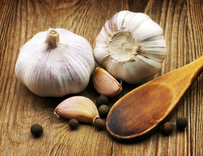 Garlic: Garlic is full of antioxidants. Garlic has been clinically shown to reduce plaque, lower blood pressure, lower LDL cholesterol, and lower levels of homocysteine. Homocysteine is an amino acid that is converted into cysteine with the help of vitamins B6, B12 and folate. Homocysteine that is not converted elevates homocysteine levels throughout the body and has been associated with heart attacks, stroke, and the formation of blood clots. Garlic can also act as an anticoagulant, or blood thinner, which helps prevent blood clots that lead to heart attacks and strokes. The most recent studies show aged garlic supplements can be taken with prescription blood thinners safely. Breakthrough research done at UCLA by Dr. Matthew Budoff demonstrated the powerful benefits of aged garlic. Patients received 1200 mg of aged garlic extract daily for one year, which reduced the growth of plaque by 66%, making garlic more effective than statin drugs and aspirin. http://jn.nutrition.org/content/136/3/741S.full  Reishi Mushroom: Reishi mushrooms have unique and complex elements such as triterpenes, alkaloids, sterols, and polysaccharides that support heart health. Reishi mushrooms have been studied intensively for their proven ability to improve blood flow to the heart and lower blood pressure. Reishi helps the heart muscle use less oxygen, making more available for the rest of the body to support health. Extracts from reishi reduce LDL cholesterol helping to prevent strokes and heart attacks. “Prescription for Natural Healing” by Phyllis Balch  Policosanol: Policosanol are derived from the waxes of plants such as sugar cane and yams. They are long chain alcohols that are soluble in water and are most commonly known as fatty alcohols. The key alcohol in Policosanol is called Octacosonal. It prevents the liver from creating an excess of cholesterol, resulting in lowering bad cholesterol and raising good cholesterol. It may also reduce the amount of plaque that is stored in the arteries. Policosanol and Octacosonal work together and it is not recommended to take Octacosonal by itself. Policosanol can be as effective as taking 100 milligrams of aspirin a day. It has also been shown to increase exercise performance in those with coronary heart disease. (TheSupplementGuide.org, 2012) http://www.thesupplementguide.org/g/Cholesterol_Heart_Health/policosanol-7.html 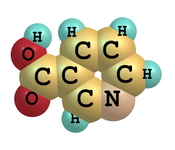 Niacin: Niacin is Vitamin B3. Studies have shown that Niacin can significantly improve HDL cholesterol levels by 15% to 30% with better success than statin drugs. It also can improve LDL levels by reducing triglycerides 20% to 50%. Hot flushes can occur with Niacin so start with small doses and increase over time. (www.webmd.com, 2012) 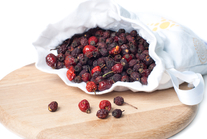 Hawthorn: Hawthorn is a shrub in the rose family which berries, leaves and flowers contain antioxidant flavonoids, including OPC’s. These antioxidants help dilate blood vessels, improve blood flow, and protect blood vessels from damage. Human clinical studies propose that hawthorn protects against heart disease by increasing coronary artery blood flow, improving circulations and lowering blood pressure. A large study done using over 900 patients with heart failure found taking a standardized hawthorn supplement significantly decreased the clinical symptoms of heart failure including palpitations, problems breathing and fatigue. Hawthorn was shown to be as effective as the prescription medication captopril for improving symptoms of heart failure. Hawthorn is effective for increasing blood flow to the heart, reducing angina (chest pain) and increasing the amount of time patients could work out without chest pain. https://umm.edu/health/medical/altmed/herb/hawthorn 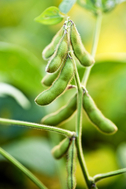 Nattokinase: Nattokinase is extracted from fermented soy and is a strong proteolytic enzyme that helps break down proteins causing inflammation. Nattokinase supports heart health by significantly reducing blood clots, normalizing blood pressure, and breaking down fibrin, the adhesive substance that makes plaque around the heart sticky. http://www.globalhealingcenter.com/natural-health/nattokinase/  Sytrinol: Sytrinol contains compounds called flavones found in oranges, tangerines, and palm fruit extracts that support total cholesterol, LDL cholesterol and triglyceride levels naturally. These flavones block enzymes in the liver that manufacture cholesterol and triglycerides. Clinical studies who sytrinol to be as effective as statin drugs, but without the side effects. Results show a 30% decrease in total cholesterol levels and up to a 27% decrease in LDL cholesterol within four to twelve weeks. http://doctormurray.com/health-conditions/high-cholesterol/ 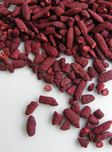 Red Yeast Rice Extract: Red Yeast Rice (RYR) is an extract from a centuries old Chinese Spice and is used in Traditional Chinese Medicine to support blood circulation. Numerous studies have shown RYR lowers your Total Cholesterol, LDL Cholesterol and Triglycerides while also having the ability to raise your good HDL Cholesterol. One of the major contributors to heart disease is widespread inflammation in the body. RYR has demonstrated the capacity to reduce inflammation that affects the heart. A large clinical study followed patients over a four year period and those taking RYR were at a lower risk for heart attack and death. The majority of cholesterol medications affect your liver, and have debilitating side effects like muscle ache, fatigue, changes in mental function and damage to muscle tissues. These side effects are the result of these drugs severely lowering levels of CoQ10 in the body. These prescription drugs are actually derived from Red Yeast Rice. However, RYR is more tolerated in the body. It is still recommended to supplement with CoQ10 when taking RYR. (PureHealthMD, 2012) http://health.howstuffworks.com/wellness/food-nutrition/vitamin-supplements/red-yeast-rice-extract.htm It is important to understand the role fats play in supporting heart health. Cholesterol is very misunderstood and in fact does NOT cause heart disease. Please take time to read the following information to learn more fats, how they work in your body, and what changes you can make in your diet to support your heart. Understanding Fats & Heart Health 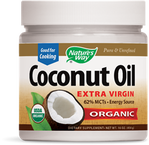 95% of the fats we eat from plant and animal sources come in triglyceride form. Triglycerides are three single fatty acid molecules linked together by a glycerol molecule. There are several different types of fatty acids that fall under three categories: saturated, monounsaturated, and polyunsaturated. A fatty acid molecule is chained together with carbon atoms, which can hold up to two hydrogen atoms creating a Saturated fat. A fatty acid chain that is missing a pair of hydrogen atoms is called Monounsaturated fat. Polyunsaturated fats are missing more than two pairs of hydrogen atoms. A missing pair of hydrogen atoms creates a weak link in the carbon chain which impacts health. The other key component to how a fatty acid affects health is the length of the carbon chain: long chain triglyceride (LCT), medium chain triglyceride (MCT), and short train triglycerides (SCT). Each fatty acid, saturated or not, is going to have a different effect on the health of your body, for better or for worse. All naturally occurring fats contain a mixture of all three groups of fatty acids. Animal fats are usually the highest in saturated fats while plant oils contain low amounts. Coconut oil contains the highest amount of saturated fat reaching 92%. Coconut oil is also composed of 64% MCTs, the highest dietary source, and it contains small chain triglycerides. When fat is not used immediately for energy it gets stored in our body as fat tissue. The typical LCTs found in meat and vegetable oil are the biggest culprit. MCTs are quickly broken down and are utilized by the body as the primary energy source. The fats from coconut oil rarely become stored as fat, or build up deposits in the arteries. Thus they do not have a harmful effect on cholesterol and they in fact protect the heart from disease and inflammation. Plant oils, with the exception of olive oil, are high in polyunsaturated fats. These fats become rancid and toxic when oxidized by exposure to heat, light or air resulting in the formation of free radicals. The oxidation process begins immediately when the oil is extracted from seeds, and the higher level of processing the more toxic an oil will become. The best types of oils for consumption are cold-pressed or expeller-pressed, which retain their natural antioxidants. Trans fatty acids were created with technology and are found in vegetable oils that have been hydrogenated to form a solid product like margarine and shortening. Trans fatty acids have been shown to have a direct impact on the development of heart disease, negatively affect heart health more than any other type of fat. Trans fatty acids also affect the ability of insulin to bind with red blood cells, linking it to complications with diabetes. Saturated fats are not vulnerable to oxidation because their chains are strong and complete with hydrogen atoms. Saturated fats even remain stable when exposed to normal cooking temperatures, making coconut oil the absolute best choice for cooking and baking. The liver easily converts saturated fats into cholesterol. This can raise blood cholesterol levels and is a reason many Americans avoid using coconut oil. Fat researchers and medical professionals know for a fact that neither saturated fat nor cholesterol causes heart disease. Not all people with high blood cholesterol level develop heart disease, and not all of those with heart disease have high blood cholesterol levels. High blood cholesterol levels are one risk factor of many (high blood pressure, age, diabetes, obesity, stress, tobacco use) for heart disease. Other carbohydrates from fruits, vegetables and grains also get converted by the liver into cholesterol, so it has been misleading to believe only saturated fats raise blood cholesterol levels and contribute to heart disease. Cholesterol doesn’t always play a role in atherosclerosis or formation of plague in the arteries. Cholesterol is actually needed by your body to repair damage to arterial walls. Atherosclerosis begins from injuries caused by toxins, free radicals, virus or bacteria. If these wounds aren’t healed properly, further damage, irritation, inflammation and scar tissue build up and attract platelets that stick to the site of injury as a protectant. Calcium, triglycerides and more cholesterol are drawn to these sites for additional healing. It is this mass of tissue that creates plaque, and the calcium causes the material to harden. Years of research and study demonstrate that people consuming coconut oil full of healthy MCT saturated fats actually have a reduced risk of heart disease, lower body fat composition, reduced risk of blood clots, lower levels of free radicals and higher levels of antioxidants, lower liver cholesterol levels, higher survival rate and fewer rates of heart disease.
0 Comments
Leave a Reply. |
|
